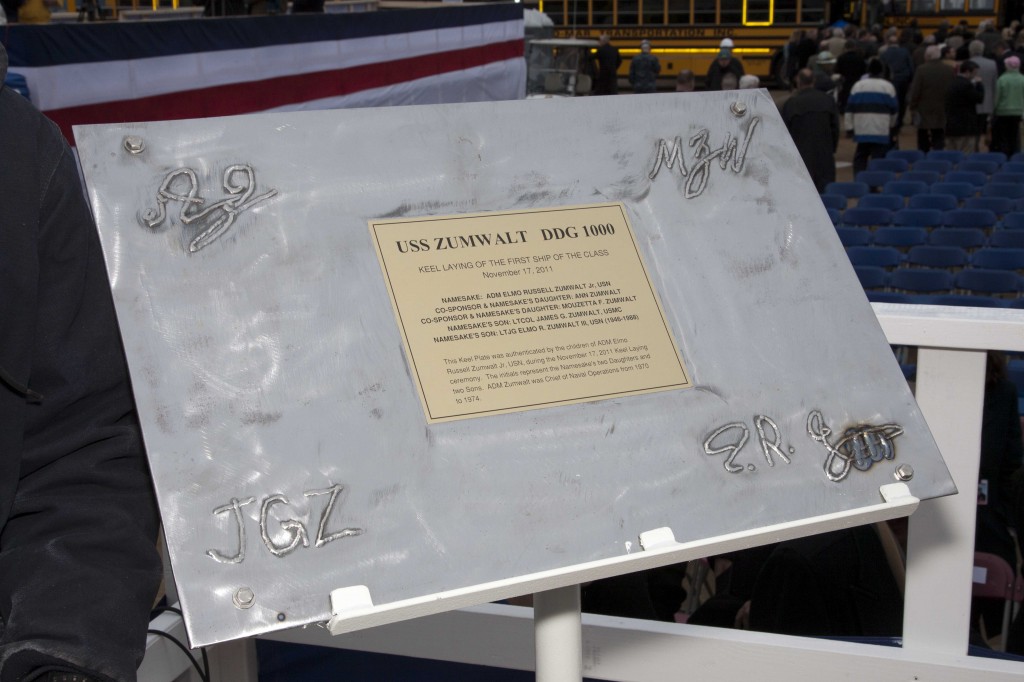
Keel Laid for First DDG 1000 Destroyer
From Program Executive Office, Ships Public Affairs
BATH, Maine (NNS) — The U.S. Navy laid the keel for its first Zumwalt-class destroyer (DDG 1000), Nov. 17, at General Dynamics-Bath Iron Works shipyard in Bath, Maine.
While keel laying was once traditionally the formal recognition of the start of the ship’s construction, today’s advanced modular shipbuilding allows fabrication of the ship to begin months before. However, the keel laying continues to symbolically recognize the joining of the ship’s components and the ceremonial beginning of the ship.
“Keel laying is just the first of many important milestones and events in bringing Zumwalt to life,” said Capt. Jim Downey, DDG 1000 program manager, Program Executive Office, Ships. “With the outstanding team we have assembled, I look forward to building on the superb progress we’ve achieved to date and delivering this extremely capable warship to the Fleet.”
The lead ship and class are named in honor of former Chief of Naval Operations Adm. Elmo R. “Bud” Zumwalt Jr., who served as chief of naval operations from 1970-1974. The ship’s co-sponsors, Ann Zumwalt, Mouzetta Zumwalt-Weathers, and Lt.Col. James G. Zumwalt symbolically authenticated the keel with a plate displaying the initials of all four children of the ship’s namesake, including eldest son, the late-Elmo R. Zumwalt III.
Construction began on DDG 1000 in February 2009, and the Navy and its industry partners have worked to mature the ship’s design and ready their industrial facilities to build this advanced surface combatant. Zumwalt is currently more than 60 percent complete and scheduled to deliver in fiscal year 2014. Construction on the second ship of the class, Michael Monsoor (DDG 1001), began March 2010.
Designed for sustained operations in the littorals and land attack, the multi-mission DDG 1000 will provide independent forward presence and deterrence, support special operations forces, and operate as an integral part of joint and combined expeditionary forces. This warship integrates numerous critical technologies, systems, and principles into a complete warfighting system. These include employment of optimal manning through human systems integration, improved quality of life, low operations and support costs, multi-spectral signature reduction, balanced warfighting design, survivability, and adaptability.
